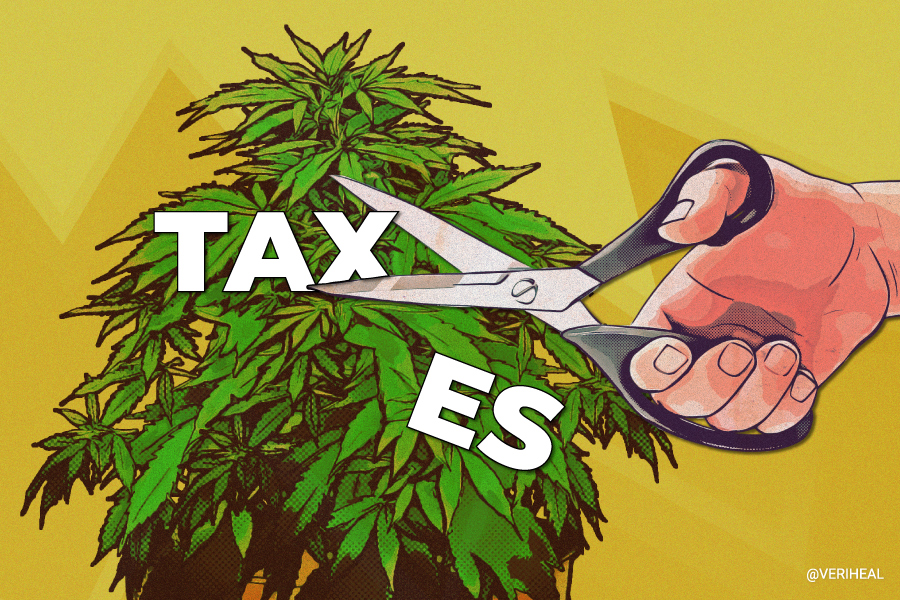California’s cannabis industry is acknowledged as one of the most profitable in the United States, with the industry yielding $333 million in cannabis taxes during the second quarter of 2021. However, state lawmakers are moving at a snail’s pace to lower cannabis taxes.
Cannabis industry taxation in California is starving companies of the opportunity to thrive, compete, and profit. The state’s hefty cannabis taxes are strengthening the illicit market, and to make matters worse, the cannabis excise tax will increase to 15% of the average market price for all cannabis retail sales by July 1, 2025.
Fortunately, in an attempt to reverse what Natalynne DeLapp, executive director of the Humboldt County Growers Association, describes as a “statewide issue,” local governments are pushing to provide cannabis businesses with the tax relief that they so rightly deserve.
Efforts to grant California’s cannabis companies with tax relief have escalated across various localities—including San Diego, Desert Hot Springs, Sonoma County, and Humboldt County—since local governments began channeling their energy into this area a few years back.
What Do California’s Cannabis Tax Rollbacks Represent?
Ongoing advocacy efforts from local businesses, residents, and industry organizations have prompted California’s localities to extend tax relief to cannabis companies. California’s cannabis tax reductions have also emerged after experts, lawmakers, and licensed operators made allegations against the state for failing to adequately address tax reform issues—a situation that has been described as a “crisis” by many industry insiders.
Although Gov. Gavin Newsom (D) vowed to deal with tax reform back in January, he wasn’t exactly clear on the details. Nonetheless, progress has been made, with four state-level tax relief bills recently being introduced:
- Assembly Bill (AB) 2792
- AB 2506
- Senate Bill (SB) 1281
- SB 1293
Currently, California’s business license holders must pay a state cultivation tax of $161 per pound of cannabis, in addition to a 15% excise tax and any taxes imposed by city and county officials.
Where Have California’s Cannabis Tax Reductions Taken Place?
So far, reports suggest that the following localities have already implemented, or are contemplating implementing, cannabis tax relief discounts:
- Bellflower – Local officials recently voted to reduce distribution taxes to 1% from 7.5% and manufacturing taxes to 2% from 7.5%.
- Berkeley – The cannabis tax rate in Berkeley was decreased to 5% from 10% in February 2018 in an attempt by local officials to remain competitive in the Bay Area.
- Cloverdale – A vote that was expected to take place on March 9 by the City Council sought to reduce cannabis tax rates for all business license holders as well as rank tax rates specifically for different kinds of licenses.
- Desert Hot Springs – In February of last year, the cannabis cultivation tax was reduced by local lawmakers from $25.50 per square foot to just $10.20 per square foot.
- Humboldt County – The county’s Board of Supervisors recently voted to temporarily shrink its cannabis cultivation tax by 85% for one year.
- Lake County – Back in January, Lake County’s Board of Supervisors voted to delay the deadline for cannabis tax payments until May 15. Moreover, members chose to suspend the 25% late-payment penalty. Staff members were also instructed to establish new cannabis tax relief options for further deliberation and future voting purposes.
- Long Beach – City officials opted to reduce the cannabis distribution, manufacturing, and testing taxes from 6% to 1% during the year 2019. Then, the following year, the City Council dismissed a suggested tax increase and, instead, hiked up cannabis retailer hours of operation.
- Monterey County – The Board of Supervisors voted to reduce the industrywide cultivation tax on March 1. Included in that tax reduction was the removal of a rule that previously imposed an instant increase on all taxes and the complete elimination of distribution tax. Following the postponing of an automatic cannabis cultivation tax increase that was scheduled to go into effect sometime between 2021 and 2022, members of the board voted to grant growers the opportunity to update their taxable square footage of crop canopy to twice annually from just once annually.
- Oakland – Gross receipts taxes on cannabis businesses were reduced in 2019 by the City Council to 0.12% from 10%. The rule change applied to cannabis companies that generate income of $500,000 or less.
- Palm Springs – Local lawmakers in Palm Springs dropped the cannabis manufacturing tax from 10% to 2% in February of 2019.
- Sonoma County – Cannabis taxes for Q1 2022 were halted from Jan. 31 through April 30 following a January vote by the Board of Supervisors. Consequently, unless members of the Board decide to further extend the postponement, taxes accrued for both quarters must be paid on April 30 without interest or penalties incurred.
- San Diego City – The City Council voted in February to slash the cannabis growing and manufacturing tax from 8% to 2%. This rule will be effectuated on May 1.
- San Francisco City – Authorities pushed forward with the approval of a second one-year deferral on the metropolitan area’s cannabis business tax in December of 2021. The rule change will remain valid through 2023.
- San Jose – The flat-rate cannabis taxes in San Jose were reduced in July 2018, with cultivation taxes cut from 10% to 4%, manufacturing to 3%, distribution to 2%, and testing to 0%.
Furthermore, a long list of California’s localities have approved resolutions urging the state to update its cannabis tax rules. They include the following:
- Alameda County
- Calaveras County
- Lake County
- Mendocino County
- Monterey County
- San Francisco (city and county)
- Santa Cruz County
- City of Berkeley
- City of Desert Hot Springs
- City of Oakland
- City of Rio Dell
Author, Share & Comments















